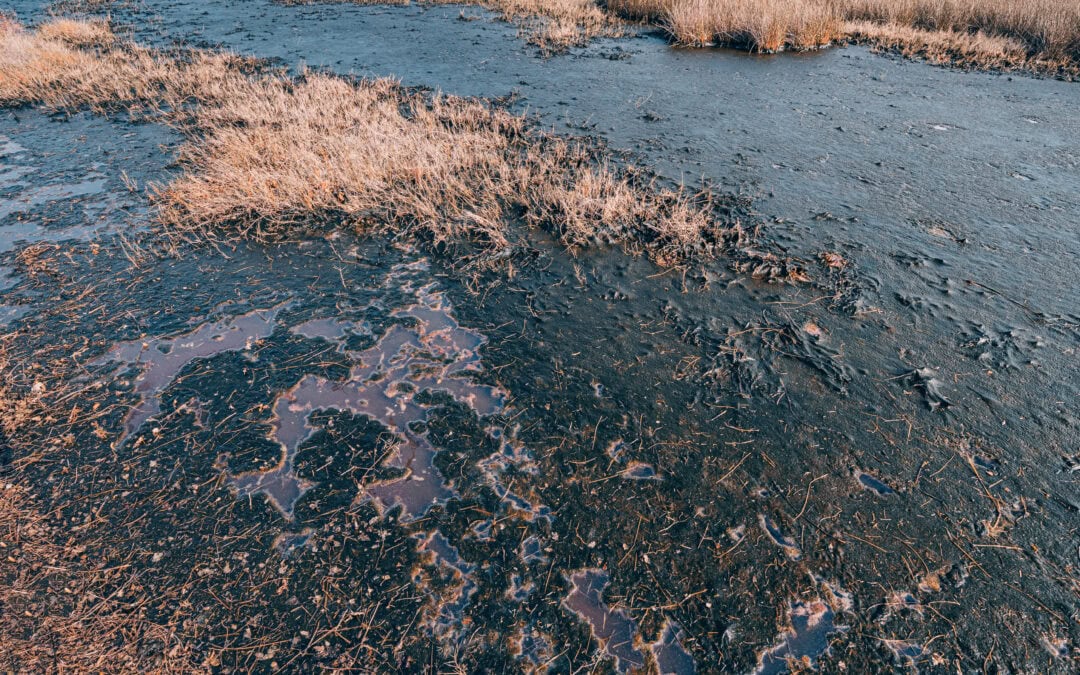Land pollution has become one of the most pressing environmental challenges facing communities across Louisiana and the United States. When factories and oil and gas operations release chemicals into soil and groundwater, those toxins can stick around for decades. That puts our health at risk, harms property values and often leads land owners to pursue Legacy litigation for relief.
At Talbot, Carmouche & Marcello, we understand that environmental contamination cases are complex, requiring specialized expertise in both environmental science and legal precedent. Our experience in Legacy litigation has shown us firsthand how the effects of land pollution can devastate communities and individual property owners.
Understanding the Causes of Land Pollution
Land pollution occurs when harmful chemicals, industrial waste, or other toxic substances contaminate soil and groundwater systems. The effects of land pollution are far more extensive and long-lasting than many people realize, creating problems that can span generations.
These issues begin with toxic chemicals that alter soil composition and destroy beneficial microorganisms essential for healthy ecosystems. Heavy metals like lead, mercury, and cadmium become permanently embedded in soil, while petroleum products create toxic zones that render areas uninhabitable for decades.
Common sources of pollution include:
- Industrial Waste: Factories that dump solvents, heavy metals or by-products directly onto the ground.
- Oil and Gas Operations: Leaks, spills or old drilling pits that let petroleum products soak into the soil.
These pollutants can kill helpful microbes, change soil chemistry and destroy natural filters that keep water clean. Once that happens, toxins spread far beyond the spill site.
Health and Environmental Effects
Land pollution doesn’t just stay underground. It can affect you and your neighbors, as well as the wildlife, plants and streams around you. The effects of land pollution on human health can cause serious consequences, and you can be exposed multiple ways:
Direct Contact Exposure
Walking, gardening or playing on contaminated land allows toxic dust to land on your skin and clothes. Kids, especially, can set up camp in dirt without even knowing it’s unsafe. Direct contact with contaminated soil can have immediate effects, including skin irritation.
Water Contamination Pathway
Once soil loses its filtering power, rain and irrigation carry chemicals into wells, streams and lakes. Long after the spill, heavy metals and solvents can show up in your drinking water.
Indoor Air Infiltration
Some chemicals vaporize and creep into basements or crawl spaces. That “soil gas” can raise your risk for headaches, liver problems, or even certain cancers.
Food Chain Contamination
Crops absorb metals and chemicals from tainted soil. Livestock that consumes those plants can pass toxins to us through milk, meat or eggs.
Community Health Impacts
Medical research shows increased rates of respiratory diseases, developmental disorders, and certain cancers in communities near contaminated sites. Pregnant women can face serious risks from the effects of land pollution, as toxic chemicals affect fetal development, which can result in lifelong consequences. These intergenerational health impacts make Legacy litigation essential for protecting families.
Ecosystem Harm
When microbes, insects and plants die off, food webs collapse. Birds, fish and mammals face shrinking habitats and fewer healthy food sources. Streams, too, suffer as toxins leach downstream and change water chemistry.
Economic Effects of Land Pollution
The effects of land pollution create substantial financial impacts that devastate property values and destroy economic opportunities.
- Property Value Decline: Property values for contaminated sites can decrease dramatically, with some becoming completely unmarketable.
- Agricultural Destruction: Contaminated farmland becomes unsuitable for crop production, eliminating generational income sources and destroying organic certification permanently.
- Water Supply Costs: Groundwater contamination forces expensive alternative water supplies, with private wells becoming unusable and requiring costly bottled water or municipal connections.
- Insurance and Financing Issues: Property owners face difficulty obtaining coverage and higher interest rates due to environmental liability concerns, creating long-term economic consequences.
These losses ripple through towns. Businesses close, tourism shrinks and local budgets tighten.
Legacy Litigation & Land Pollution Remediation
Legacy litigation addresses historical environmental contamination involving multiple responsible parties and complex liability issues.
The success of Legacy litigation depends on establishing clear causal links between historical oil and gas activities and current contamination. This requires careful documentation of the effects of land pollution and their connection to specific responsible parties.
If your community or property has been affected by land pollution, consulting with experienced attorneys can help you understand your legal options. The effects of land pollution are too serious to ignore, and Legacy litigation may provide the path to both compensation and environmental protection your community needs. Contact Talbot, Carmouche & Marcello today for a free consultation.

